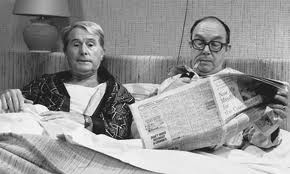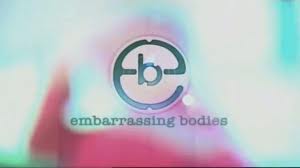Then and Now
UNTIL rock music took over, music hall, variety or vaudeville – they were arguably versions of the same thing, and any differences belong in a discussion elsewhere – spent eighty years as Britain’s dominant live entertainment. Gone are those theatres where our little gang of ten learned their craft, polishing and honing at the bottom of the bill, what they called ‘the wines and spirits’, until they were good enough to move from the tatty Number 3 circuit to the Number 2 and then Moss Empires and Stoll, who handled the Number 1 venues.
With the theatres mostly consigned to history as variety venues by the late 1950s, younger entertainers learned their craft in different settings: pubs, working men’s clubs, holiday camps, college revues and, much later, comedy clubs.
The stars who followed our gang, coming to prominence in the 1950s at the tail-end of touring twice-nightly variety, still had a whiff of the music halls about them but were able to adapt much more easily to changes in society and public demand: Morecambe and Wise, Tommy Cooper, Bruce Forsyth, Benny Hill and so many others may have begun among the wines and spirits on bills topped by our old-timers, but they saw the way the wind was blowing and quickly became telly-savvy. Although many had appeared in cabaret, revue, films and on radio, there was a tendency towards inflexibility in many of the old stars. They were accustomed to a pre-television world where you could tour the same act for years.
And while they were certainly smart enough to recognise the importance and potential of television, and some longed to be on it more often – to get the hang of it somehow – most tended to be unsuited to the medium. “She completely ignores the camera and just plays behind it to the small studio audience,” a TV producer said of Hetty King. “She doesn’t seem to realise that the camera represents millions of people.”
Well, of course she did, because she was nobody’s fool. But when you’ve spent seventy years performing to a living, breathing audience, manipulating and coercing, riding the crowd with the skill of a jockey taming an unruly beast, you’d choose a bit of life over the unseen multitudes represented by the cold glass eye of the television camera any day.
Many of them were quite well-off and could have retired, so why did they battle on, touring Britain, Ireland, Australia and South Africa in Old Time Music Hall shows? Two reasons. There was an ageing constituency who still loved them, who found their presence comforting and life-affirming, their predictability reassuring. The other reason is probably more compelling – it was what they did. Usually from theatre or circus families, most had been full-time entertainers since they were toddlers, and knew no other way of life.
Today, television has become the wines and spirits where performers learn. Ambition, raw energy, clever marketing and a willingness to bare the soul in public have replaced years of struggle, experience and development. The old stars acquired skills now fallen into desuetude, such as tap-dancing, and mostly hid their true natures behind a professional smile. Nowadays a version of the inner self is revealed immediately, and a common ground has emerged for both performer and spectator to inhabit.
Instead of marvelling at fabulousness, and extraordinary and hard-won expertise, we have a compulsion to observe the mundane on television: people like us, cooking, doing up houses, swapping lifestyles, getting married, describing embarrassing ailments, trying to start businesses, going on diets, singing badly on talent shows and weeping when judged harshly. Fame has become democratised and anyone unburdened by accurate self-awareness can have it if they possess enough courage and a personality that might catch our fleeting attention.
Though some viewers regret this evolution, it is not necessarily worse. Just different. Show business has become bigger than tap-dancing, but also smaller.


stephendee
| #
Doesn’t ring a bell with me, Stefan, tho it’s a very typical Sarony line. Anyone? Stephen
stefan Beard
| #
Just been reading the Leslie Sarony piece. Absolutely fantastic. Well done. A question if you don’t mind. Does anyone know the the title of the Leslie Sarony song that has the line “Oi ! how you gettin’ on? ” in it ?
ruskimic
| #
I do hope you can help me. I have been searching for many years for my Great Uncle Mr Albert Edward Rayner who went under the name of Dan Rayner. I believe he worked the Music Halls but I do know for sure he worked with Fred Karno. When Charlie Chaplin left Fred in America over a Pay dispute the American backers of the tour insisted that my Great Uncle Dan Rayner be called over from England to take Charlie Chaplin’s Place. It appears Dan was liked more at that time in America than Charlie was. Another man in the troupe at that time was Stan Laurel. When the show folded Dan was asked along with Stan to stay in America. As we know Stan stayed and found he fame and fortune. Dan however chose to return to England. He was last that I can find in a play Dick Wittington at the Empire Theatre advertised in the a local paper in Durham in 1948. Unfortunately I have not been able to find when or where he died. I am hoping that maybe on your search you came across some info on Dan Rayner. I live in Australia so am unable to search all the death records for England with out it costing me a fortune. So any help you maybe able to give me would be really appreciated. I know he went to America twice and once to Australia and also once to South Africa. I do know he was married to a lady named Barbara Robinson and they had a son Conrad Paul Rayner but I have been unable to find any thing out about these two members of his family. I do know they separated before 1935 and he lived with another lady named Phyliss but as to her last name I have no idea. I have been searching for nearly 10 yrs now and I don’t think there is any thing left on the net that can help me. You it would appear maybe my last chance. I will keep my fingers crossed that you did come across some info on him or you know some one that maybe able to help. He went to America in 1913 on the Lusitania and it shows at this time he is married. He then returns to America in 1914 on the ship Adriatic. I do believe he also did a radio show after 1935 for quite some time but do not know the name of that show. I do hope you can help in my search for my Great Uncle.
I also might add my great grandfather was Edwin Richard Barwick. He was also a Music Hall performer and appeared in the first Royal Command Performance. If you get the picture and Index to that even you will see him standing next to Pavlova. I would love to hear any information you may have found out about him. I do believe he was one of the first members of the charity named water rats, I know star was spelt back wards to get the rats part. Edwin did a lot of work for this charity in his day. What I would love to know is if there is any recording of Edwin Performing and if so how I would go about getting a copy or seeing any recording. I do have a photo copy of an old theatre bill with my grandfathers name boldly written on it. Again any help would be appreciated.
All the best and I look forward to hearing back from you in the near future
Kim Rayner
my email address is ruskimic@yahoo.com.au